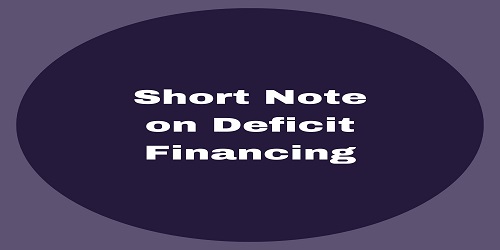Deficit Financing:
Deficit financing is a method of financing public expenditure. The government may resort to deficit financing, i.e., the printing of fresh currency for mobilizing additional resources and, thus, may finance public expenditure. As new money is printed, this results in a net addition to the circular flow. In other words, the supply of money is increased as a result of deficit financing. Therefore, this form of deficit financing is said to be inflationary in nature. Thus, financing of public expenditure through deficit financing has desirable effects on increasing the level of income and employment during the depression, and objection is raised against its use in times of inflation. It has a very significant stabilizing impact on the economic system in depression. It is a device through which government can get additional resources at minimum cost. Since the supply of money is increased, interest rates are reduced and the economic system is likely to register a quick revival. In view of the monetary and fiscal effects of deficit financing, a counter-cyclical budgetary policy points out that budget surpluses during inflation and deficit in depression can reduce the magnitude of fluctuations. It also points out that the deficit during the depression should be financed through the method of deficit financing and borrowings from banking institutions.









Comments (No)